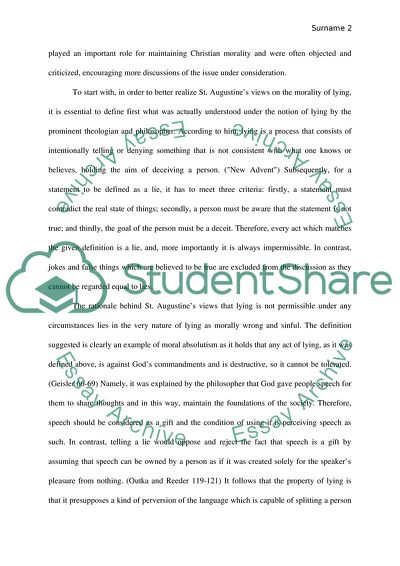Cite this document
(Augustines Views on Morality of Lying Essay Example | Topics and Well Written Essays - 1500 words, n.d.)
Augustines Views on Morality of Lying Essay Example | Topics and Well Written Essays - 1500 words. https://studentshare.org/social-science/1840396-augustines-view-on-morality
Augustines Views on Morality of Lying Essay Example | Topics and Well Written Essays - 1500 words. https://studentshare.org/social-science/1840396-augustines-view-on-morality
(Augustines Views on Morality of Lying Essay Example | Topics and Well Written Essays - 1500 Words)
Augustines Views on Morality of Lying Essay Example | Topics and Well Written Essays - 1500 Words. https://studentshare.org/social-science/1840396-augustines-view-on-morality.
Augustines Views on Morality of Lying Essay Example | Topics and Well Written Essays - 1500 Words. https://studentshare.org/social-science/1840396-augustines-view-on-morality.
“Augustines Views on Morality of Lying Essay Example | Topics and Well Written Essays - 1500 Words”. https://studentshare.org/social-science/1840396-augustines-view-on-morality.


